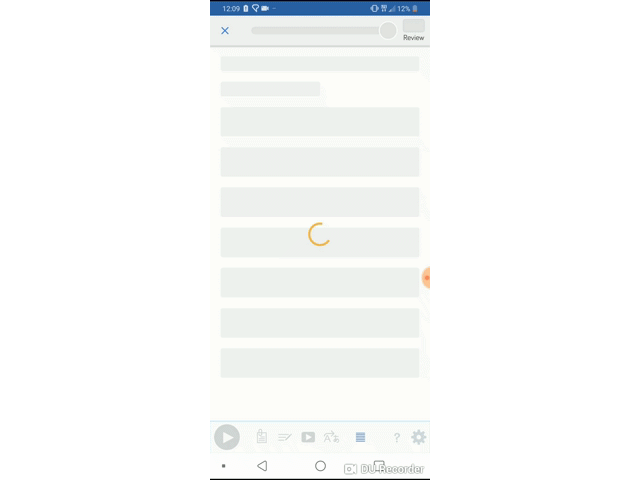Counting in Japanese
The most basic math that we are taught as children is counting, and counting is used quite often in our day-to-day lives. For those not in specialized fields, counting may be the “math” most done on an average day.
Counting is easy in your native language, but counting in different languages may be a tad more difficult. For the uninitiated, some of the irregular pronunciation or the tons of counters used may be off-putting, but if you learn it one step at a time you can master it fairly well. Here are the basics of counting.
An Intro to Counting in Japanese
The way to cover somewhat difficult topics is to simply start, and to that end, we will cover the basic numbers of counting. This part is fairly simple. By knowing the numbers 1-10, you can count all the way to 99. So, without further ado, here are those numbers:
1 一 (ichi)
2 二 (ni)
3 三 (san)
4 四 (yon) or (shi)
5 五 (go)
6 六 (roku)
7 七 (nana) or (shichi)
8 八 (hachi)
9 九 (kyuu)
10 十 (juu)
Easy right? Now for the tricky part. In Japanese, when you count something, you use these things called counters, which are added at the end of the number. The counter つ (tsu) is a general counter that can be used for just about anything that is inanimate. Don’t worry, we won’t overload you with counters in this post. However, it is important to know these pronunciations of the numbers. Here they are:
1 一つ (hitotsu)
2 二つ (futatsu)
3 三つ (mittsu)
4 四つ (yottsu)
5 五つ (itsutsu)
6 六つ (muttsu) or (mutsu)
7 七つ (nanatsu)
8 八つ (yattsu) or (yatsu)
9 九つ (kokonotsu)
10 十 (too)
Ten doesn’t get the counter after it, but is just pronounced “too”. Keep these pronunciations in mind for the future, but for now, you can leave them alone.
Counting to High Numbers
Alright, so you know how to count to 10. But how do you count to 99? It’s actually really simple in Japanese compared to English.
Take the word fifty four in English. In Japanese, it would be more like “five tens four”, which would be 五十四 (gojuuyon). So, 99 would be “nine tens nine”, which would be 九十九 (kyuujuukyuu). Thirty five would be 三十五 (sanjuugo). You may have noticed that 4 could be pronounced as “yon” or “shi”.
Under 10, both are fine. However, in numbers after ten, it is usually pronounced “yon”. Similarly, 7 could be pronounced “shichi” or “nana”, and before 10, both are acceptable. In numbers after 10, it is usually “nana”. This is the rule, and exceptions can exist. It may be slightly different depending on where you are in Japan, for example.
Now that you know how to count to 99, let’s go further. To say “one hundred”, you don’t say “ten tens”, as there’s a specific word for it. That word is 百 (hyaku). To say “101”, you’d say “hundred one”, which is 百一 (hyakuichi). Or 452, which is “four hundreds five tens two”, or 四百五十二 (yonhyakugojuuichi). To say 341, you’d say “three hundreds four tens one”, which is 三百四十一 (sanbyakuyonjuuichi). Did you notice something a little different? The pronunciation of 300 isn’t “sanhyaku”, but “sanbyaku”. There’s a couple changes in sounds that make it easier to pronounce. With hyaku, these pronunciation differences include:
300 三百 (sanbyaku)
600 六百 (roppyaku)
800 八百 (happyaku)
With this, you should now be able to count to 999. After 999 comes the word for “thousand”, 千, which is pronounced “sen”. So, to say 1,567, you’d say “thousand five hundreds six tens seven”, or 千五百六十七 (sengohyakurokujuunana). Similarly with 百 (hyaku), there are some differences in pronunciation with certain words with “sen” that make it easier to pronounce. These include:
3,000 三千 (sanzen)
8,000 八千 (hassen)
With this, you can now count to 9,999!
Note that you may also sometimes hear “issen” for 一千, but you don’t need the 一 when just at 1,000.
Moving forward, the word for 10,000 is 一万 (ichiman). In numbers of 10,000 or above, you use 一 (ichi) in front of the number, like 万 (man), instead of just having 万 (man). So you wouldn’t pronounce 10,327 as “mansanbyakunijuunana”, but as “ichimansanbyakunijuunana”.
Now, here comes the odd part for English speakers. In English, a number tends to be three places. In Japanese, it’s four. If you don’t understand what I mean, read the following number in English: 99,999,999. Notice the commas separate numbers by threes. In modern Japanese, numbers are written the same when written in Arabic numerals. However, notice how your speech reflects this separation in English such as how 999,999,999 comes before a billion or 999,999 comes before a million. In Japanese, it’s not three, but four, such as how 99,999,999 comes before the next number, 億 (oku), which means 100 million. It may be a little difficult to grasp, so let’s look at some examples.
To say 99 million, you’d say 9,900万 (kyuusenkyuuhyakuman), or “nine thousands nine hundred ten thousands”. This can take quite a while to get used to for native English speakers. You can go up to 9,999 ten-thousands, and that is as far as you can go with further numbers such as 億 (oku).
For instance, you can go up to 9,999億 (kyuusenkyuuhyakukyuujuukyuuoku), but cannot go up to 10,000億. It instead turns to 1兆 (icchou), which means 1,000,000,000,000 and so high were not covering it too much here. This can be fairly confusing, so go over it slowly and carefully if you need to review it. Learning to think of and count numbers differently can be extremely difficult as we’re so used to thinking of it how we do it in our own native language. For high numbers, you just chain lower numbers together up to 9,999 + [Insert number] + [lower numbers].
Let’s do some practice.
Try to say 99,457,328 in Japanese. Now try 23,543,845,231 in Japanese. To say 99,457,328 in Japanese, you’d say “nine thousand nine hundred fourty five ten thousands, seven thousand three hundred twenty eight”, which would be “kyuusenkyuuhyakuyonjuugomannanasensanbyakunijuuhachi”. Similarly, to say 23,543,845,231 in Japanese, you’d say “two hundred thirty five hundred millions, four thousand three hundred eighty four ten thousands, five thousand two hundred thirty one”, which would be…
“nihyakusanjuugookuyonsensanbyakuhachijuuyonmangosennihyakusanjuuichi”.
Well, those numbers were mouthfuls! If it’s still a tad confusing, don’t worry! These numbers are huge, so don’t fret over it too much. Take your time to get acclimated to how different it all is.
Odd Numbers
If you’ve made it all the way through to here, good job! We’re almost done. We’re just going to go over some “odd” numbers like numbers after the decimal place and negative numbers.
To speak of a negative number, you just say マイナス (mainasu) before it. So, -3 would be pronounced “mainasu san”. To speak of numbers with decimal points, you just say “point [insert number]”, saying each number separately. To say “point”, you say 点 (ten). So, for the number 5.358, you’d pronounce it as “go ten san go hachi”. To read “0” in Japanese, you can say 零 (rei), ゼロ (zero), or even マル (maru).
Congratulations on making it through all of that! It’s quite a bit to comprehend, so take some time on making sure you understand the numbers. Make sure to take your time and not overload yourself. To learn Japanese more efficiently, you may as well use LingQ!
Learn Japanese Faster Using LingQ
Immersing yourself in Japanese doesn’t require you to travel abroad or sign up for an expensive language program.
However, it can be a bit tiresome to find interesting content, go back and forth between sites, use different dictionaries to look up words, and so on.
That’s why there’s LingQ, the best way to learn Japanese online because it lets you learn from content you enjoy!
You can import videos, podcasts, and much more and turn them into interactive lessons.
Keep all your favourite Japanese content stored in one place, easily look up new words, save vocabulary, and review. Check out our guide to importing content into LingQ for more information.

LingQ is available for desktop as well as Android and iOS. Gain access to thousands of hours of audio and transcripts and begin your journey to fluency today.
***
Caiman Cotton is a freelance Japanese translator who has studied the language for years. He hopes to one day also study Latin.
Want to learn Japanese from content you love?

